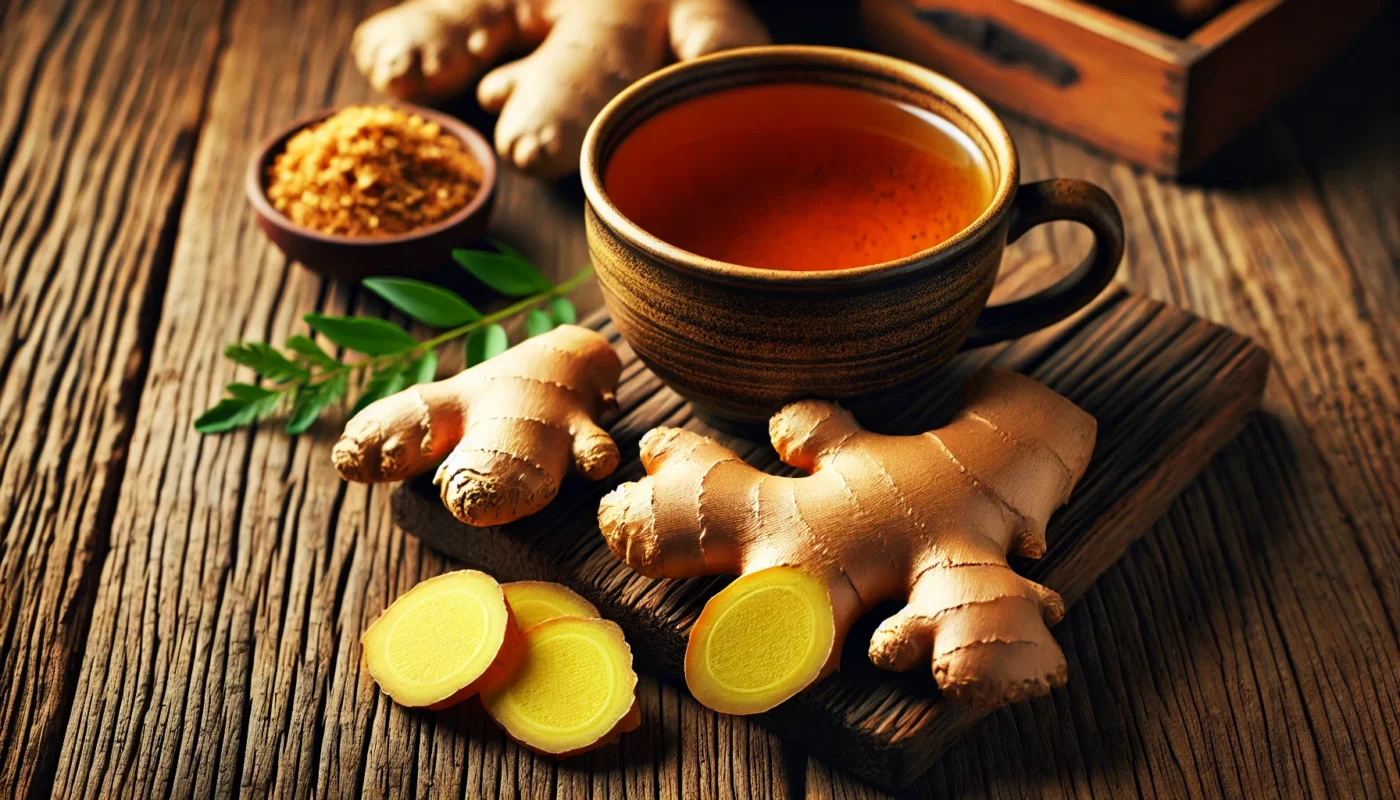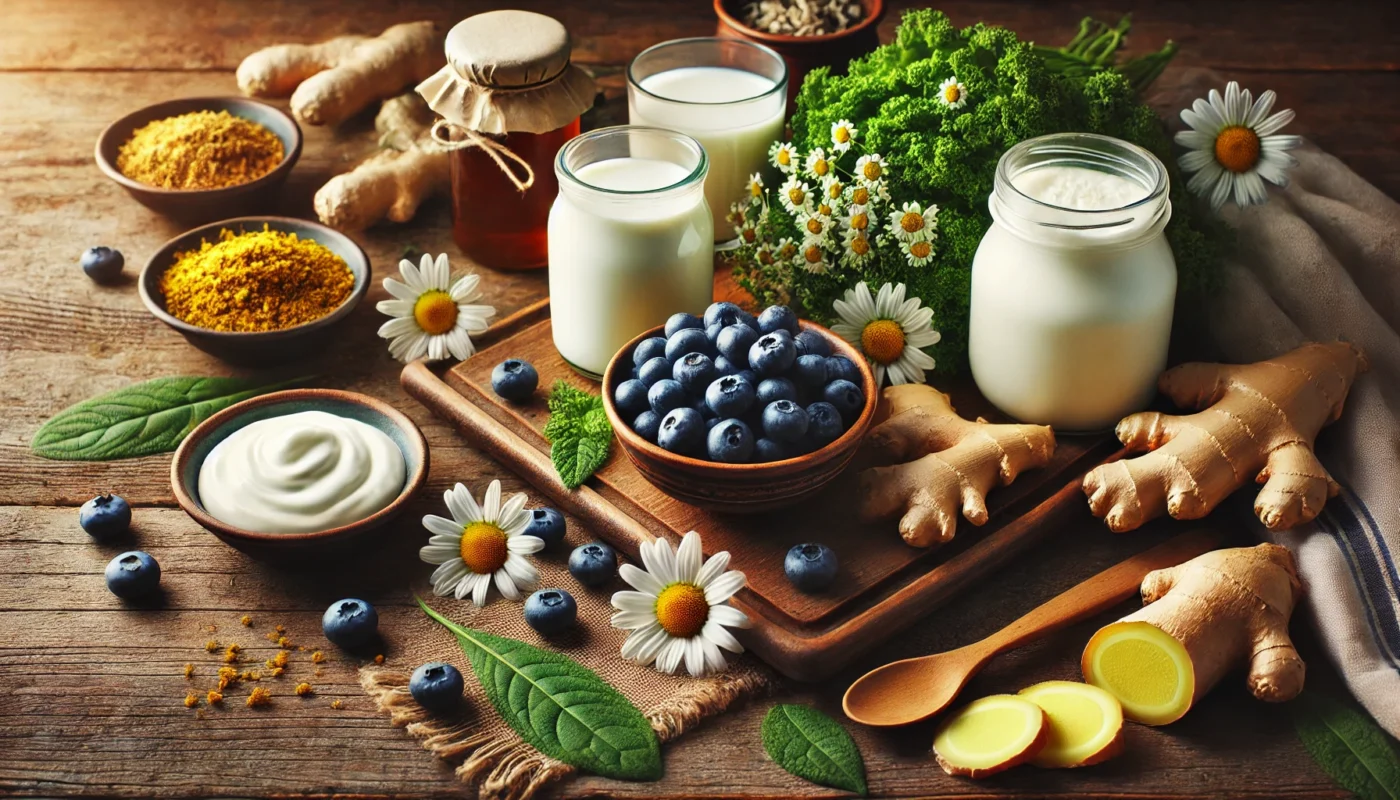Stomach inflammation, also known as gastritis, can be a bothersome condition that affects many individuals. The inflammation of the stomach lining can lead to discomfort, indigestion, and even more severe gastrointestinal issues if left untreated. While traditional medical treatments are available, many people are seeking natural remedies to alleviate their symptoms and promote healing. In this article, we will explore effective natural remedies for healing stomach inflammation, providing you with practical strategies to enhance your well-being.
You May Also Like: Managing Pain Through Dietary Choices
Understanding Stomach Inflammation
Before we delve into natural remedies, it is essential to understand what stomach inflammation entails. Gastritis occurs when the stomach lining becomes inflamed due to various factors such as excessive alcohol consumption, chronic stress, infection, or the prolonged use of NSAIDs. Symptoms may include abdominal pain, bloating, nausea, and a burning sensation in the stomach.
Causes of Stomach Inflammation
The root causes of stomach inflammation can vary widely from person to person. One prevalent cause is the Helicobacter pylori infection, a bacterium that can inhabit the stomach lining and lead to chronic inflammation. Another significant factor is the consumption of irritants like spicy foods, which can cause irritation and inflammation. Additionally, autoimmune disorders can also result in the body attacking its own stomach lining, leading to inflammation.
Symptoms and Diagnosis
Recognizing the symptoms of stomach inflammation is crucial for timely intervention. Common symptoms include persistent upper abdominal pain, a gnawing or burning sensation in the stomach, and frequent bouts of nausea. Some individuals may also experience a feeling of fullness even after small meals. Diagnosing gastritis typically involves a combination of symptom assessment, endoscopic examination, and sometimes a biopsy to determine the extent of inflammation and identify any underlying causes.
The Impact of Lifestyle and Diet
Lifestyle and dietary habits play a significant role in the development and exacerbation of stomach inflammation. High levels of stress and poor dietary choices, such as frequent consumption of processed foods and alcohol, can contribute to the weakening of the stomach lining. Moreover, skipping meals or having irregular eating patterns can lead to an imbalance in stomach acid production, further aggravating the condition.

Healing Stomach Inflammation Naturally
Addressing stomach inflammation naturally involves a comprehensive approach that incorporates diet, lifestyle, and holistic remedies. By making informed choices and embracing natural solutions, individuals can find relief and promote healing.
Dietary Modifications
One of the most effective ways to treat stomach inflammation naturally is through dietary modifications. By consuming foods that are gentle on the stomach and avoiding irritants, you can support the healing process.
Foods to Include
- Probiotics: Probiotics are beneficial bacteria that promote gut health. Consuming foods like yogurt, kefir, and sauerkraut can help restore the balance of your gut microbiome and reduce inflammation. These foods not only aid digestion but also enhance the absorption of nutrients, which is essential for healing.
- Fiber-rich foods: Incorporating fruits, vegetables, and whole grains into your diet can aid digestion and prevent constipation, which can exacerbate gastritis symptoms. Fiber works as a natural cleanser for the digestive tract, helping to eliminate toxins and reduce inflammation.
- Ginger: Known for its anti-inflammatory properties, ginger can soothe the stomach and alleviate nausea. Try adding fresh ginger to teas or meals for added benefits. Ginger also helps improve circulation, which can aid in reducing overall inflammation in the body.
- Green leafy vegetables: These are rich in antioxidants and can help reduce inflammation in the stomach lining. Antioxidants combat oxidative stress, a common contributor to inflammation, and promote cellular repair.
Foods to Avoid
- Spicy foods: These can irritate the stomach lining and worsen inflammation. Spicy foods increase stomach acid production, which can further damage the already inflamed stomach lining.
- Caffeine and alcohol: Both can increase stomach acid production and contribute to irritation. Limiting or eliminating these from your diet can help soothe the stomach and reduce inflammation.
- Processed foods: High in unhealthy fats and sugars, processed foods can exacerbate inflammation and hinder healing. These foods often lack essential nutrients needed for tissue repair and can disrupt the balance of the gut microbiome.
Herbal Remedies
Herbal remedies have been used for centuries to treat various ailments, including stomach inflammation. Here are some herbs that can help soothe gastritis symptoms:
Chamomile
Chamomile tea is known for its calming properties and can help reduce stomach inflammation and discomfort. This herb contains anti-inflammatory compounds that soothe the stomach lining. Drinking chamomile tea regularly can also promote relaxation, which is beneficial for stress-induced gastritis.
Peppermint
This herb can help relax the muscles of the gastrointestinal tract and ease symptoms of indigestion and bloating. Peppermint oil, in particular, has been shown to reduce stomach spasms and improve digestive flow. However, it is essential to use it cautiously, as peppermint can sometimes exacerbate symptoms in individuals with GERD.
Licorice Root
Licorice root has anti-inflammatory properties and can help protect the stomach lining. However, it’s important to use deglycyrrhizinated licorice (DGL) to avoid potential side effects. DGL has been shown to increase mucus production in the stomach, which acts as a barrier against acid and promotes healing.
Lifestyle Changes
Implementing lifestyle changes can significantly impact your ability to manage and heal stomach inflammation naturally.
Stress Management
Chronic stress can exacerbate stomach inflammation. Incorporating stress-reducing activities such as yoga, meditation, and deep breathing exercises can help calm your mind and improve your overall well-being. These practices also help lower cortisol levels, a stress hormone that can contribute to inflammation.
Regular Exercise
Engaging in regular physical activity can promote healthy digestion and reduce stress levels. Aim for at least 30 minutes of moderate exercise most days of the week. Exercise enhances blood flow, which can speed up the healing process and improve digestive efficiency.
Adequate Sleep
Quality sleep is crucial for the body’s natural healing processes. Ensure you get 7-9 hours of restful sleep each night to support your immune system and overall health. Establishing a regular sleep routine and creating a calming bedtime environment can improve sleep quality and support recovery.
Supplements
Certain supplements can also aid in healing stomach inflammation:
Omega-3 Fatty Acids
Found in fish oil, omega-3 fatty acids have anti-inflammatory properties that can benefit the stomach lining. These healthy fats can reduce overall inflammation and have been linked to improved gut health.
L-glutamine
This amino acid helps repair and protect the gut lining, promoting healing. L-glutamine is particularly beneficial for individuals with chronic inflammation, as it supports the regeneration of the stomach lining and enhances immune function.
Zinc Carnosine
This supplement can help support the stomach lining and reduce inflammation. Zinc carnosine has been shown to stabilize the gut barrier, reducing permeability and preventing further irritation and damage.

How to Get Rid of Stomach Inflammation: Real-World Strategies
Case Study: A Patient’s Journey
Consider the case of Sarah, a health enthusiast who struggled with chronic stomach inflammation. After consulting with a holistic health practitioner, she implemented several natural remedies discussed above. By following a diet rich in probiotics and fiber, integrating herbal teas like chamomile and peppermint, and taking omega-3 supplements, Sarah experienced significant relief from her symptoms. Additionally, she incorporated stress-reducing practices such as yoga and meditation into her daily routine, further supporting her healing journey.
Dietary Transformation
Sarah began by overhauling her diet, focusing on whole, unprocessed foods. She included more anti-inflammatory foods, such as turmeric and blueberries, which are known for their healing properties. Her meals became more balanced, with a conscious effort to avoid processed foods and sugar.
Mind-Body Connection
Recognizing the role of stress in her condition, Sarah adopted a more mindful approach to life. She practiced mindfulness meditation daily, which helped her stay present and manage stress more effectively. This approach not only helped her gastritis but also improved her overall outlook on life.
Professional Guidance
While these natural remedies can provide relief, it’s essential to consult with a healthcare professional before making significant changes to your health regimen, especially if you have existing medical conditions or are taking medications. A professional can offer personalized advice and ensure that the remedies align with your individual health needs.
The Role of a Nutritionist
Engaging with a nutritionist can provide insights into the best dietary choices for managing gastritis. They can create a personalized meal plan that meets your nutritional needs while avoiding irritants.
Integrative Healthcare
An integrative healthcare approach that combines conventional and alternative treatments can be beneficial. Working with practitioners who understand both perspectives can offer a comprehensive strategy for tackling stomach inflammation.

Conclusion
Healing stomach inflammation naturally involves a holistic approach that combines dietary modifications, herbal remedies, lifestyle changes, and supplements. By adopting these strategies, you can alleviate symptoms and promote healing in a gentle yet effective manner. Remember, patience and consistency are key when it comes to natural remedies, and consulting with a healthcare professional can provide valuable guidance on your journey to improved health and well-being. Embrace the journey to wellness with an open mind, and your body will thank you for it.
Further Reading:
Natural Remedies for Gastritis
Best Natural Treatments For Gastritis
An Integrative Medicine Approach to Gastritis
Natural Remedies, Stomach Inflammation, Gastritis, Holistic Health, Dietary Modifications, Herbal Remedies, Probiotics, Gut Health, Stress Management, Anti-inflammatory Foods, Nutrition, Wellness, Supplements, Lifestyle Changes, Digestive Health
Important Note: The information contained in this article is for general informational purposes only, and should not be construed as health or medical advice, nor is it intended to diagnose, prevent, treat, or cure any disease or health condition. Before embarking on any diet, fitness regimen, or program of nutritional supplementation, it is advisable to consult your healthcare professional in order to determine its safety and probable efficacy in terms of your individual state of health.
Regarding Nutritional Supplements Or Other Non-Prescription Health Products: If any nutritional supplements or other non-prescription health products are mentioned in the foregoing article, any claims or statements made about them have not been evaluated by the U.S. Food and Drug Administration, and such nutritional supplements or other health products are not intended to diagnose, treat, cure, or prevent any disease.

